ESG / CSR
Industries
Road Trip: An American Ritual – How Can it Go Green?
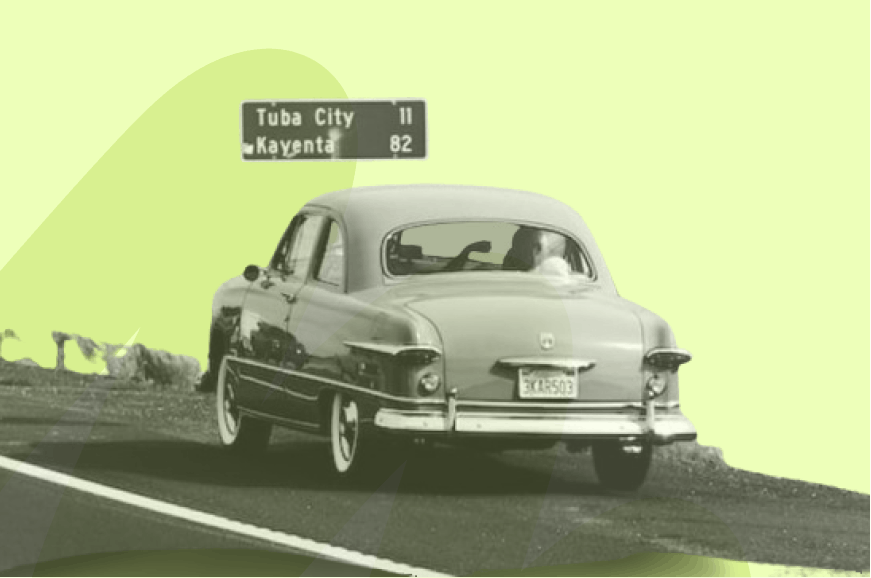


- The history of taking a road trip in the U.S.
- The environmental impact of a road trip
- How to make future road trips more sustainable
Having moved to all corners of the U.S., having driven across the country twice, and up and down the East coast more times than I can count – I’m pretty familiar with how a road trip across the country goes. The excitement of an open road, adventure, fatigue from sitting for hours on end in the car – but music video moments of playing that song just meant to be heard with the wind blowing through your hair as you breeze across the pavement…
However, most of the road trips I took were when I was a little kid, and there was one big factor never crossed my mind before: the environment.
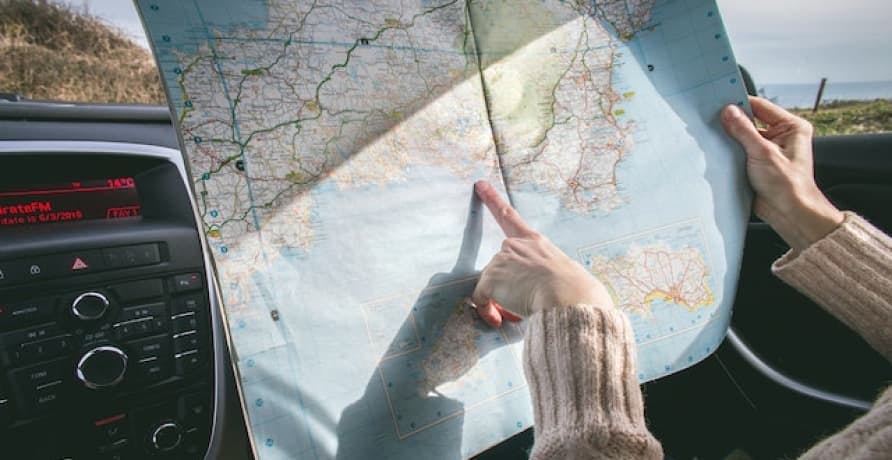
In a country that isn’t as interconnected as continents like Europe or countries like Japan, a road trip in the U.S. is really the only surefire way to see many of the United State’s greatest hidden treasures: like the Grand Canyon or Mount Rushmore.
Taking a road trip is an experience that all Americans, even foreign tourists, dream of doing during their time in the U.S. – but how does it impact the environment?
Are there ways to adjust this American tradition to pertain to the climate change measures necessary?
In this article, we'll explore the environmental impact of a road trip and how you could make your next road trip more sustainable.
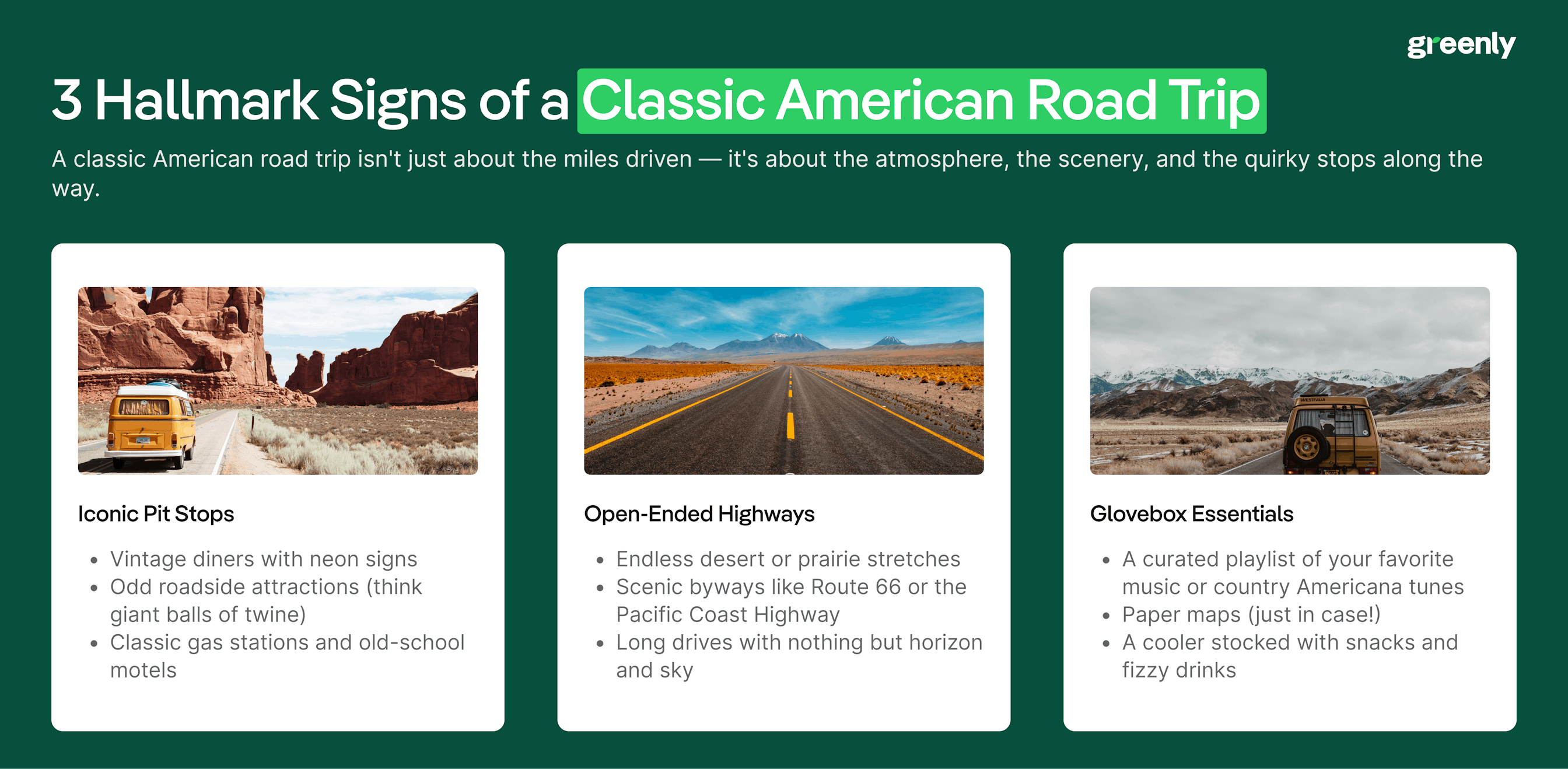

Why is Taking a Road Trip an American Tradition?
American road trip culture is a direct reflection of the country's free-spirited identity – as a road trip encapsulates the essence of freedom and exploration, much of which the United States was built off of by those who colonized the country in the first place.
Furthermore, driving across the U.S. is really the best way to see the country – from Route 66 to the Pacific Coast Highway, Americans rely on highways to discover the country's diverse landscapes, many of which are only accessible by car as opposed to public transportation.
Road trips allow for flexibility, low-budget travel, and seeing countrysides of the U.S. that would go unnoticed otherwise. Besides, the country isn’t built with a train system like Europe – so the only feasible option for those who want to see their own country is to see it on the road.
The U.S. is known to be a melting pot in terms of diversity – as the country itself is composed of people from around the world who came to the United States in hopes of pursuing a better life or the infamous, “American Dream” – where everyone can live a life of equal opportunity and success.
Americans thrive on freedom, the root principle the country was built on – and nothing depicts that cultural value more than a road trip.
What Are Some of the Most Popular Road Trips to Take in the USA?
As the United States is a huge country there are lots of different road trips to take – such as along the coast of California, through middle America, or specifically to see major tourist sites such as Yellow Stone National Park or the Grand Canyon.
The summary cards below will break down some of the most popular road trips to take in the U.S.:
🚗🌊 Pacific Coast Highway
California’s most iconic road trip: cruise from San Diego to San Francisco past Big Sur, Malibu, and Monterey with endless ocean views.
🛣️🏜 Route 66
This legendary route stretches from Chicago to Santa Monica, full of retro diners, desert towns, and classic roadside Americana.
🍁🦞 New England Road Trip
Hit Boston, Cape Cod, Providence, Portland (ME), Rhode Island, and maybe even New York or D.C.—especially stunning in fall.
🎷🌴 Southern Road Trips
From New Orleans to Florida’s Highway 1, Miami, Disney World, and Texas hill country—rich in culture, music, and sunshine.
🏞️🍂 Appalachian Adventure
Drive the Blue Ridge Parkway through the Great Smoky Mountains. Expect cozy cabins, fall foliage, waterfalls, and small-town charm.
🏔️🌄 Mountain Highways (UT & CO)
Scenic Byway 12 in Utah and Colorado’s alpine roads offer breathtaking canyons, cliffs, and hikes through some of the U.S.’s most epic terrain.
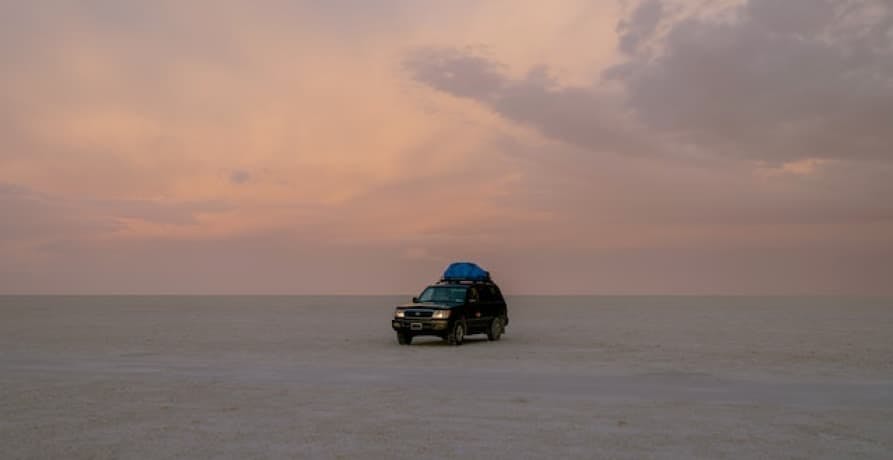
Is a Road Trip the Most Popular Way to Travel in the United States?
Yes, a road trip is one of the most popular ways to travel in the U.S. – with a whopping 1.95 billion road tips taken in 2024 alone. Furthermore, recent research indicates that Americans are returning to road trips – with 63% of Americans having planned to take their summer vacations by car in 2024.
Given the United States is such a large country, roughly twice the size of Europe – many people assume that Americans are always flying around the country to get to where they want to go, but many of my French colleagues were surprised to learn that this isn’t the case.
Why Do Americans Travel by Car?
The majority of Americans drive by car because it's deeply ingrained in our culture and conducive to the way many suburban cities in the U.S. are set up, as the United States relies on road infrastructure as opposed to trains or public transportation for people to get from one place to another.
Domestic Flights are Expensive in the U.S.
Travel isn’t as accessible in the United States as it is in other places around the world. I realized this when my brother showed me how many train lines you can see on Google Maps throughout Europe in comparison to the United States. Flying has become exceptionally expensive in the U.S. in recent years, too – with a cross-country flight costing upwards of $600 with a 25% increase in airline ticket prices nationwide.
Even flying short distances in the U.S. has become expensive, with flights from Washington D.C. to Chicago running around $200 a ticket. The logical and most environmentally friendly solution that may come to mind is to take a train, but the railway system isn’t as established or functional as it is in places like Europe. As a point of reference, the distance between Philadelphia and Chicago & Paris and Vienna are about the same – roughly 760 miles in between them. While long, it isn’t improbable to travel from Paris to Vienna via train: with travel time totaling around 10.5 hours. On the other hand, a train from Philly to Chicago via Amtrak is double the time – and at times, even more costly than flying.
The answer? Most Americans opt to travel by car rather than by train or plane – as it’s often the most cost-effective and time efficient way to get to where they want to go.
Even if people don’t drive from New York to California, studies still show that taking a road trip is the most popular and common type of travel for Americans – especially following the pandemic where many were wary of taking commercial flights and opted for road travel instead.
The drop down sections below will reveal some of the addition reasons why Americans often drive instead of taking planes, trains, or public transportation:
In a sense, a tradition that already existed has been amplified even more following global crises such as the pandemic and climate change. As a result, the environmental impact of road trips is more prevalent than ever before.

Why is Taking a Road Trip Bad for the Environment?
A road trip has its downsides, even if they don’t pertain to the environment – like constant fatigue for the one doing the most driving throughout the road trip, and figuring out how to plan to see so much in a limited amount of time.
However, the most deleterious component of taking a road trip is certainly the environmental impact it entails – and it isn’t just all of the driving.
Here's a full breakdown of the environmental impact of a classic American road trip:
Cars Emitting Greenhouse Gasses
Evidently, the biggest impact of taking a road trip is the amount of fuel being used. Many Americans opt to travel via car as it costs less to fill up their tank of gas than it does to travel via more sustainable means such as by train.
Fast Food Impact
Ever seen those movies or T.V. shows where the character on a road trip has the windshield wiper filed to the brim with empty soda cups and hamburger wrappers? It’s not far from reality – many Americans opt to buy their food along the way, which contributes to excessive waste.
The overview cards below will reveal how styrofoam cups from soft drinks, straws, and fast food from places like Mcdonald's or Burger King are bad for the environment:
Styrofoam Cups
Take hundreds of years to break down and leach harmful chemicals into soil and waterways.
Fast Food Packaging
Most wrappers, bags, and containers are non-recyclable and contribute to massive landfill waste.
Beef Burgers
Raising beef for fast food generates methane and requires huge amounts of water and land.
Single-Use Containers
Often made with plastics or coated paper that can’t be recycled and end up polluting oceans.
Plastic Straws & Lids
Commonly found in marine litter — dangerous to sea turtles and aquatic life.
Drive-Thrus
Encourage idling, which increases CO₂ emissions and air pollution in urban areas.
Cell Phone Data Use & Constantly Charging Devices
Did you know that it’s not just in your head when you’re traveling or on a road trip that your phone battery is dying quicker?
This is because your cell phone battery requires more power when it’s constantly searching for a signal, and it’s often difficult to have all four bars throughout a road trip. This results in you charging your devices, especially your cell phone, more than you usually would – ultimately consuming excessive amounts of electricity.
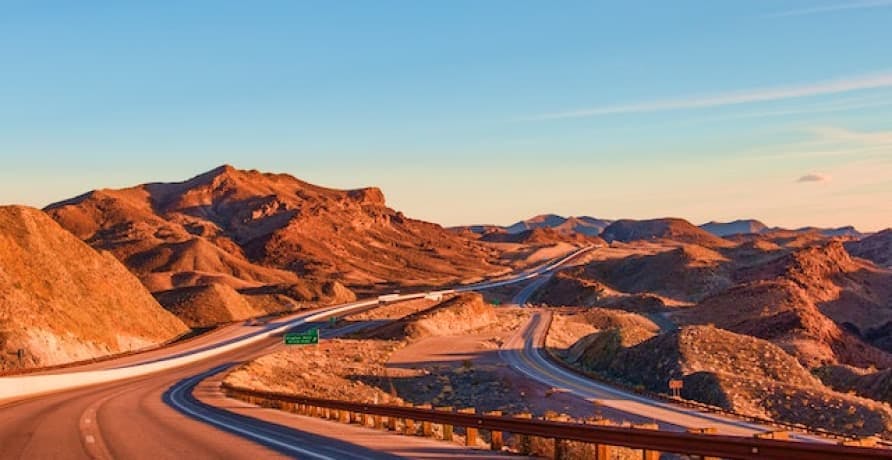
How Could You Organize Your Road Trip to be More Sustainable?
Do you still want to take a road trip, but are more determined to make it better for the environment?
Here are five easy ways to reduce your carbon footprint during your next road trip.
1. Rent an Electric or Fuel Efficient Car
While purchasing an electric car for your everyday use is important, it’s important to consider it as an option for your rental car during vacation, too. Most car rental companies advertise the cameras or heated seats rather than the environmentally friendly benefits of the vehicle, so while this step would require a little extra effort on your part – it’s likely to largely decrease the amount of emissions you're responsible for on your road trip.
In fact, according to Forbes – it's cheaper to charge an electric vehicle than to refill a tank of gas in your car virtually anywhere across America.
Pack Your Own Road Trip Snacks
Stops at drive-through places like McDonalds and Dairy Queen are a quintessential part of any road trip, but all of that fast food that most road-trippers rely on isn’t good for the environment. The production of your favorite drive-through burger relies on an exorbitant of finite resources like water and livestock – ultimately contributing to greater environmental issues like deforestation and waste.
Even if you stop at 7 Eleven for snacks, odds are you're purchasing something made of plastic that can’t be recycled. The best solution is to pack your own road trip snacks, and bring your own reusable water bottles, tupperware, and utensils – which is what my family and I did for years every time we trekked across the country. Not only will this help the environment, but it will also prevent the need for multiple pit stops and ultimately help you to cover more ground on your road trip.
The flip cards below (move cursor over card to flip) will provide some ideas for sustainable road trip snacks:
Shut the Engine Off – Even for Quick Stops
It may seem like a waste of time to shut the engine off when taking a quick pit stop or photo, but it isn’t a waste of time for the environment. Committing to a small but potent action like this can immensely help to reduce the amount of greenhouse gasses you emit throughout your road trip.
Plan Your Road Trip Well
Some people think the key to a successful road trip is hitting the pavement without a map in hand – but a calculated adventure can still be fun. Getting lost can be amusing, but often results in more driving which in turn creates more pollution. The solution is to plan your road trip route well in advance to prevent any mishaps that cause you to backtrack and create a larger carbon footprint.
Unplug – Literally!
When on a road trip, try to keep up classic driving-in-the-middle of nowhere traditions like the license plate game or watching the clouds pass by. It’s tempting to play video games and keep all of your devices charged for easy entertainment – but ultimately defeats the purpose of taking a road trip in the first place: spending time with friends and family while discovering isolated parts of the country.
The overview cards below will provide some ideas of what to do while on a road trip to avoid using electronic devices:
Play Music
Make a collaborative playlist or sing along to road trip classics.
License Plate Game
Spot plates from all 50 states and track how many you find.
Tell Stories
Swap childhood memories, funny moments, or invent a story together.
20 Questions or Trivia
Challenge each other’s minds with classic road trip games.
Contribute to a Carbon Offset Project
If you still want to take your road trip, but are concerned about the environmental consequences in which you have no control over – you can consider contributing to a carbon offsetting project to counteract the potential carbon footprint of your road trip.
A carbon offset project is when an individual invests in a project dedicated to creating a positive environmental impact to ultimately reduce emissions and combat climate change.
Pack Light & Skimp on Souvenirs
Did you know that the reason why airlines charge for overweight baggage is because if the plane is too heavy, it requires more fuel to fly?
The same goes for your own car when taking a road trip: the heavier you pack, the more gas it’s going to take to drive. Therefore, pack light if possible to reduce your fuel consumption and overall carbon footprint. In addition, opt for lightweight souvenirs whenever possible to ensure that you don’t make the car heavier than it already might be.
All of these are great tips to reduce your environmental impact on your next road trip, but are they enough to condone the overall future of this American tradition?
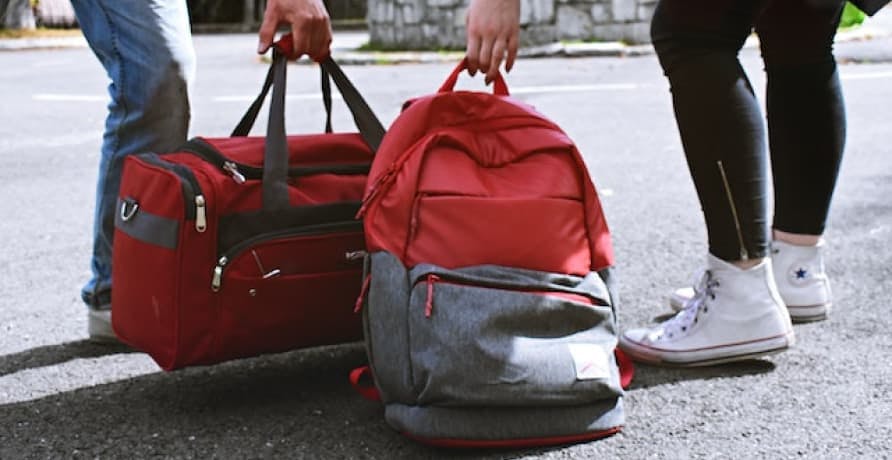
Should Americans Stop Taking Road Trips?
Road trips have become an essential part of American culture, and by this point – road trips are becoming obsolete in the U.S. are unlikely to happen. Therefore, it’s important to find new ways to adjust to traditions so that we can keep both them and the planet alive.
However, on the contrary, what Americans should be doing is finding new ways to get around locally without the need for a car.
Some states have already started to implement the measures to make this happen: like California banning the purchase of any new gasoline powered vehicles from 2035 onwards in order to encourage the use of new public transportation systems or electric cars. In fact, city driving is worse for both the car itself and the environment – as idle cars are doing nothing more but sitting there releasing superfluous emissions and polluting the atmosphere.
The battle cards below will break down the differences in how city driving and highway driving impact the environment and how city driving is ultimately worse:
The biggest challenge in the U.S. is that there is no nation-wide railway system that keeps the country connected – even in rural areas. It would be a difficult task to revamp the current system now not only because it requires years of intensive planning and construction, but more so because Americans have now assimilated to life in the U.S. – which means needing a car to get around.
The U.S. is a beautiful country, with many unique points worth stopping at. Road trips themselves don’t need to stop, and in fact should be encouraged in order to heal the prevalent divide the U.S. has seen, but the way they are done clearly needs to be altered for the sake of the environment.
After all, a road trip depicts the most intriguing concept: it isn’t about the destination, but the journey – and it’s only how we change our habits on the journey that the U.S. and the world can work together and reach their ultimate goals of reducing emissions and saving the planet.
Road trips don’t need to end – but they do need to go green if we want to have places to road trip to at all.
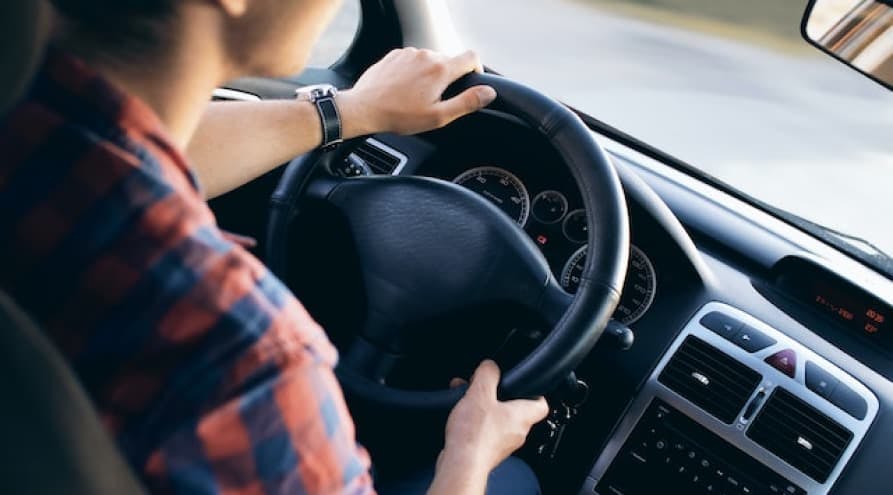
What About Greenly?
If reading this article about road trips and their environmental impact has made you interested in reducing your carbon emissions to further fight against climate change – Greenly can help you!
Greenly can help you make an environmental change for the better, starting with a carbon footprint assessment to know how much carbon emissions your company produces.
Click here to learn more about Greenly and how we can help you reduce your carbon footprint.






